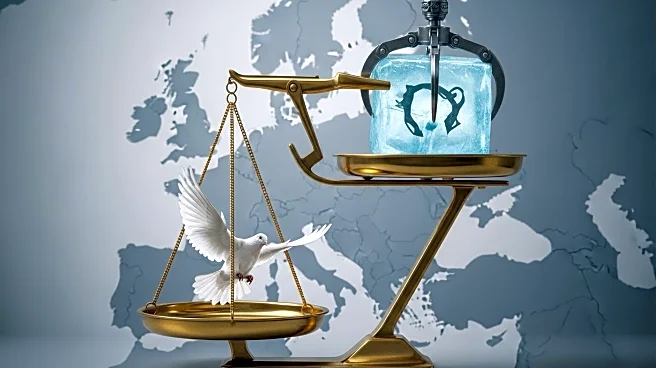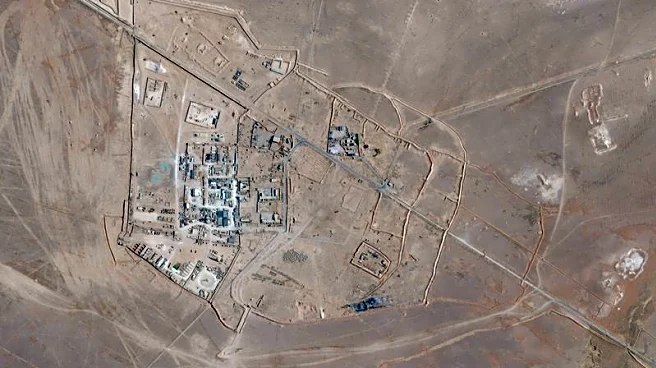What's Happening?
The European Union is considering a proposal to confiscate frozen Russian assets to provide financial support to Ukraine. This plan, gaining traction in Germany, involves the EU borrowing approximately €140 billion, with each member state sharing the risk based on GDP. The funds would be offered to Ukraine as an interest-free loan, effectively serving as war compensation. Finland's President Alexander Stubb has praised the proposal, suggesting it aligns with international law and would not solely burden Belgium, where most of the assets are held. However, Belgium has expressed concerns about the plan's impact on its financial credibility and the long-term value of the assets.
Why It's Important?
This initiative represents a significant financial and political maneuver by the EU to support Ukraine amidst ongoing conflict with Russia. If implemented, it could provide Ukraine with crucial resources for reconstruction and military efforts. The plan also highlights the EU's strategic approach to circumvent Hungary's consistent blocking of Ukraine's EU candidacy progress. The proposal's success could set a precedent for international financial interventions in conflict zones, potentially influencing global economic and political dynamics. However, it also raises questions about the legal and ethical implications of asset confiscation and the financial risks for EU member states.
What's Next?
The EU will need to navigate complex legal and diplomatic challenges to implement this plan. Belgium's resistance and concerns about financial credibility must be addressed to ensure member state consensus. Additionally, the EU may need to engage in further negotiations with Hungary to resolve its opposition to Ukraine's EU accession. The outcome of these discussions could significantly impact the EU's ability to support Ukraine and influence the broader geopolitical landscape in Europe.
Beyond the Headlines
The proposal to seize Russian assets could have long-term implications for international law and financial practices. It raises ethical questions about the use of frozen assets and the potential for similar actions in future conflicts. The plan also underscores the EU's commitment to supporting Ukraine, reflecting broader geopolitical tensions between the EU and Russia. This development may influence future EU policies on asset management and conflict resolution.










